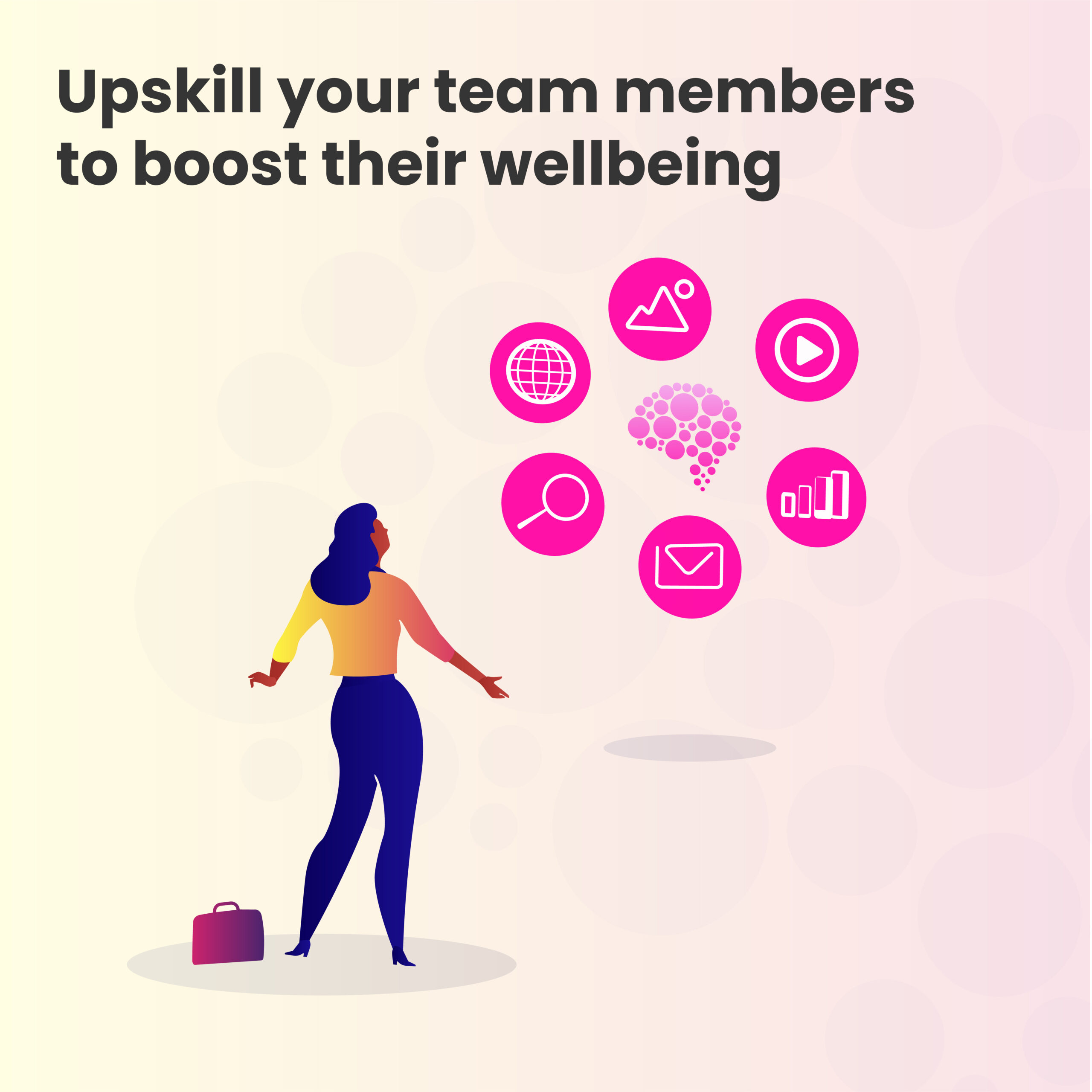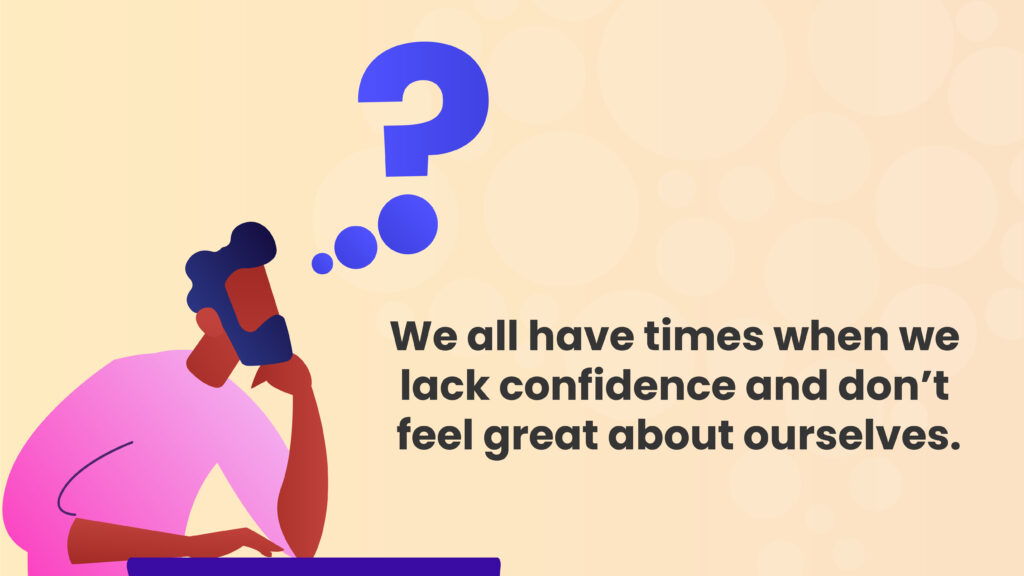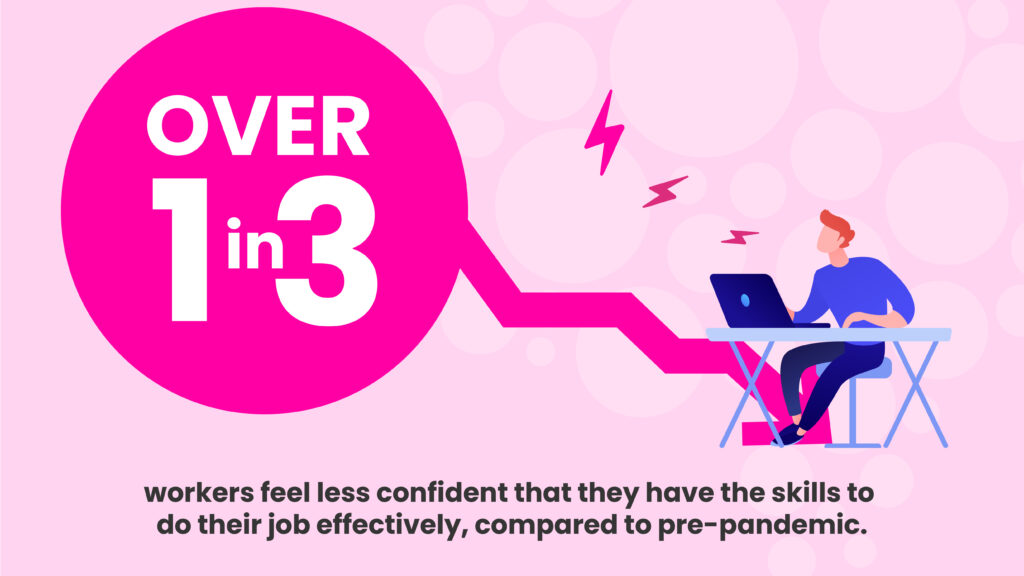
Upskill your team members to boost their wellbeing
In 2018 the Royal College of Psychiatrists report found that nearly 1 in 7 people suffer from mental health problems as a result of their work. It’s likely that since then, factoring in Covid, this number will have increased.
Stress and anxiety at work can occur as a result of many different reasons, for example, poor communication, lack of support, inflexible working hours and unclear tasks and objectives. Also, team members develop low self-esteem and low self-confidence from not having the adequate skillsets or training resources to carry out their roles to their full potential.
When people talk about workplace wellness, they tend to talk about away days, lunchtime yoga lessons and mindfulness sessions. But there’s more to wellness than meets the eye when it comes to work.
So, how can training help?
The UK currently has a skills ceiling of a staggering £11,926 – the gap between those who receive regular upskilling opportunities and those who do not. But, although financial factors are guilty of causing mental health issues for some employees, money shouldn’t be the only motivating factor for offering a solid training program.
Offering employees a platform to increase skills and knowledge is also a key way for businesses to help their employees feel more confident, connected and motivated. Thus, also making it more likely that they will be more loyal to their current workplace.
According to the NHS, research shows that learning new skills can improve a person’s mental wellbeing by:
- boosting self-confidence and raising self-esteem
- helping to build a sense of purpose
- helping to connect with other

Upskilling to offer reassurance
In a study named Endangered, research found that over a third (38%) of workers feel less confident that they have the skills to do their job effectively, compared to pre-pandemic, and nearly half (46%) predict their current skills will die out in the next 3-5 years.
Offering regular training and the opportunity to upskill to more modern techniques and practices gives team members that reassurance that they do have the tools to carry out their best work and will do into the future too.
Creating a confident team
We all have times when we lack confidence and don’t feel great about ourselves. It’s natural. But, when confidence is consistently low at work, it can become harmful to our mental health and wellbeing.
Learning new skills can help to overcome those negative beliefs people have about themselves – challenging them to improve and recognise the things they are good at.
We all feel nervous to step out of our comfort zone sometimes. But, by trying new things or taking on challenges we grow in confidence and build on our self-esteem.
Goal setting to achieve more than just the goals
Some scientists think that goal setting and working towards them plays an important role in influencing wellbeing. The process of setting targets for skill development and then reaching them can create positive feelings of accomplishment, achievement and also the motivation to do more.
Goal setting, not just for corporate gains but for personal ones too, help us to make progress and focus on what is important to us. They help us to feel like we are in control and give us something to strive for each day, rather than just operating on a Groundhog Day routine.
When it comes to setting goals for training, it’s important that they are realistic as unrealistic goals could have the opposite effect. They should be set to make positive changes that are beneficial to both the individual and the business.

If you are looking to boost your team’s wellbeing by increasing their skills and knowledge, then Cademi is just what you are looking for.
Cademi is the first and only learning platform to balance upskilling with personal wellbeing.
Book your free 14-day trial here and find out for yourselves how we can help you.
